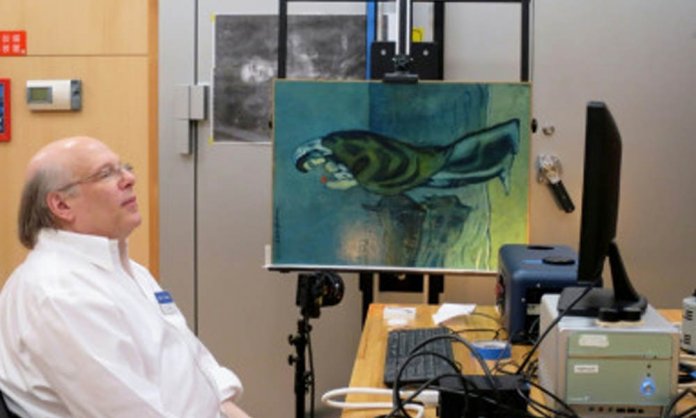Infrared imaging technology has helped peel back the layers of a Pablo Picasso painting on display in Japan, and revealed a page from a 1902 newspaper and another composition below.
Infrared imaging technology has helped peel back the layers of a Pablo Picasso painting on display in Japan, and revealed a page from a 1902 newspaper and another composition below.
E3 2018: What to Expect from PlayStation, Nintendo, Xbox & More
US and Japanese researchers scanned the piece “Mother and Child by the Sea”, owned by the Pola Museum of Art in Hakone, west of Tokyo, and uncovered a page of the French newspaper Le Journal from January 18, 1902.
“While the reason for the presence of newsprint in the paint layers in a mystery, the discovery is significant for Picasso scholars due to the proximity of the date to the artist’s move from Paris to Barcelona,” said the Washington-based National Gallery of Art, whose researcher John Delaney led the project in Japan.
Picasso is thought to have moved to the Spanish city in early January 1902, bringing a few canvasses with him, and the newspaper article revealed in the painting suggests the work was completed some time after his move.
The scan also provided clear images of an underlying painting of a woman sitting down next to an absinthe glass with a spoon in it.
Picasso frequently reused canvasses or incorporated previous sketches into a final work.
However, it was not immediately clear why the artist used a page from Le Journal, which he was known to have read frequently.
“It may have been used… to cover previous layers before he painted another layer or the final composition of the mother and child,” scientists said.
The section of newsprint brought readers news of parliamentary clashes in London and the creation of a new annual exhibition of painting and sculpture at the Automobile Club of France, a gentleman’s club in Paris.











































